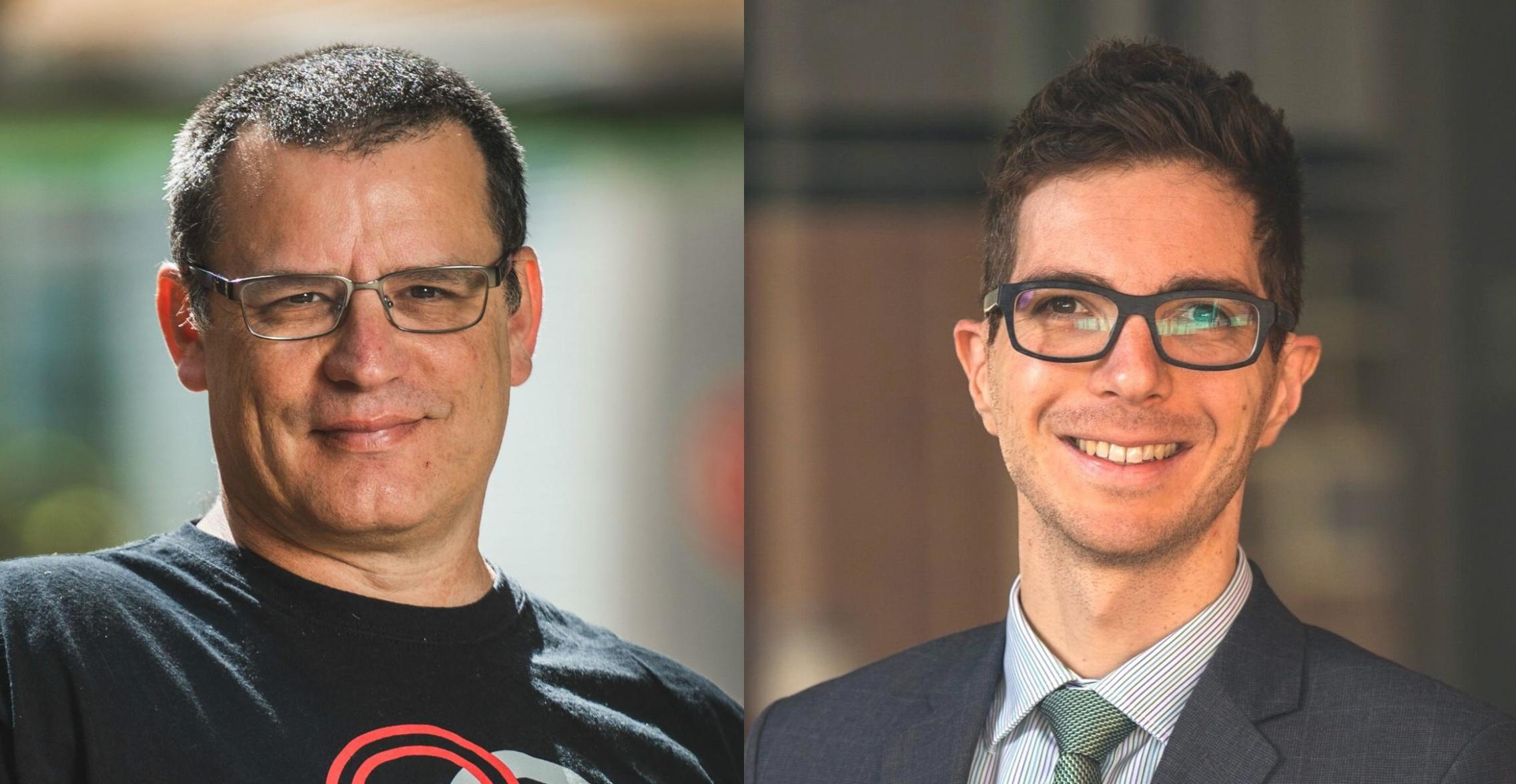Social and technical risk awareness helps for online security

Dr Yuval Yarom and Dr Russell Brewer
Understanding the pathways and drivers that lead adolescents into delinquent online behaviour or even cybercrime and making computer systems more trustworthy is the focus of the latest in the University of Adelaide’s podcast series, the Discovery Pod.
Dr Russell Brewer is Senior Lecturer in Criminology and lead Investigator with the Digital Youth Research Laboratory.
“Digital devices can augment and amplify how we interact as humans and can transcend into a delinquent context. Cyber-deviance can include hacking, stalking, bullying, harassment, cyber-hate, engaging in sexual-activities online, fraud and deception,” says Dr Brewer.
“We’re researching how we can prevent, intervene and reduce the impact and rate in which young people engage in cyber-deviance.”
“Delinquent online behaviour is often a progression of already established patterns of inappropriate behaviour in school or elsewhere.”Dr Russell Brewer
Dr Brewer’s team is conducting the first longitudinal study of young people in the world that unpacks risk factors that drive engagement in a wide range of behaviours and will develop interventions that target specific risk factors.
“When we think about young people online we think about them as potential victims of crime, and we don’t necessarily hear about or think about young people as perpetrators of crime,” says Dr Brewer.
“Delinquent online behaviour is often a progression of already established patterns of inappropriate behaviour in school or elsewhere.”
Dr Yuval Yarom is Senior Lecturer at the University’s School of Computer Science and is an expert in creating trustworthy computer systems. He specialises in protecting users from becoming victims of cyber-crime by finding vulnerabilities or flaws in computer systems and alerting manufacturers so they can apply upgrades.
“Users are moving their personal information online and exposing it to risks. Users don’t know who they’re communicating with, and don’t know how to secure this information online. This is a whole new paradigm,” says Dr Yarom.
“I investigate the capability of the computer's CPU to maintain a level of isolation between different programs to protect them from potential threats. Rather like a protective e-bubble
“We have found flaws in most processors designed in the last twenty years. Most of the big vendors update their systems when we alert them to the flaws.
“There is no necessity to buy new hardware to protect users but there is a necessity to update the software on your computer because security vulnerabilities keep being discovered. The average person just needs to update their software when the computer prompts it.”
Cybercrime is one of the most pervasive threats facing Australia, with an average of one cybercrime reported every 10 minutes.
This episode of the Discovery Pod is now available. In the Discovery Pod series University of Adelaide experts discuss how their research addresses some of society’s most pressing challenges such as renewable energy, artificial intelligence and nutrition.
Media Contacts:
Dr Russell Brewer, School of Social Sciences, The University of Adelaide. Mobile: +61 (08) 8313 5964, Email: russell.brewer@adelaide.edu.au
Dr Yuval Yarom, School of Computer Science The University of Adelaide Mobile: +61 (08) 8313 4727, Email: yval@cs.adelaide.edu.au
Sarah Matthews, Media Team, The University of Adelaide. Mobile: +61 (0)466 959 247, Email: sarah.matthews@adelaide.edu.au
